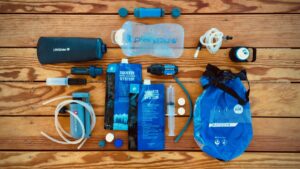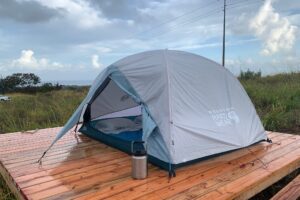Mastering navigation techniques is essential for backpacking. Learn how to stay on track during expeditions with these tips.
Backpacking is an adventurous and liberating way to explore the great outdoors. Whether you are hiking through the dense forests or conquering the highest peaks, the thrill of backpacking cannot be beaten. However, staying on track during backpacking expeditions can be challenging, especially for beginners.
One wrong turn and you may find yourself lost for hours, or even days. That’s why mastering navigation techniques is crucial for backpackers. In this article, we will discuss several techniques that will help you stay on the right path and complete your backpacking trip safely. So, let’s get started!

Credit: www.nationalgeographic.com
Why Navigation Skills Are Crucial For Backpacking Trips
Mastering navigation techniques: how to stay on track during backpacking expeditions
Backpacking is one of the best ways to explore the great outdoors. However, it involves navigating through harsh terrains and unpredictable weather patterns, making it essential to have proper navigation skills. We will discuss why navigation skills are crucial for backpacking trips and how you can develop them to stay on track and avoid getting lost.
The Importance Of Knowing How To Navigate In The Wild
Knowing how to navigate in the wild is an essential skill that every backpacker must possess. Here are some reasons why:
- Helps you stay on track: When backpacking, trails can be unclear, and signages may not always be present. Navigation skills help you stay on the right track and avoid getting lost.
- Ensures your safety: When backpacking, weather conditions can change suddenly, which can lead to dangerous situations. Proper navigation skills will help you make informed decisions and avoid risky routes.
- Increases your confidence: With navigation skills, you will be able to navigate through different terrains and know your way around the wilderness. It will also help you plan your trip better and increase your overall confidence as a backpacker.
How Navigation Skills Can Prevent Getting Lost Or Injured
Getting lost or injured during a backpacking trip can be a nightmare for any hiker. Navigation skills are a crucial tool to prevent this from happening. Here are some ways how:
- Map reading: Learning how to read maps is a crucial navigation skill that helps you plan your trip and track your progress. It enables you to know your location, distance, and direction, ensuring you are always on the right track.
- Compass navigation: Knowing how to use a compass is essential for accurate navigation. It helps you determine your position and navigate through areas where no trails or landmarks are present.
- Gps and digital navigation: In today’s digital age, gps and digital navigation have become popular tools for backpackers. They provide accurate and reliable directions, helping you navigate through unfamiliar terrain and track your route.
How To Develop Your Navigation Skills For Backpacking Trips
Developing navigation skills requires practice and experience. Here are some ways you can improve your skills:
- Take a navigation course: Many organizations offer specialized courses and workshops on navigation. Taking a course will teach you the fundamentals of navigation, including map reading, compass navigation, and gps/digital navigation.
- Practice in familiar areas: Practice your navigation skills regularly in familiar areas before embarking on a challenging backpacking trip. This will help you get a better understanding of the basics and build your confidence.
- Join a hiking group: Joining a hiking group is an excellent way to gain experience and learn from other experienced hikers. You can also learn the best practices to use while backpacking, including navigation, first aid, and safety.
- Use technology: Technology has made navigation easier, and there are many tools available today that can help you navigate accurately through unfamiliar terrain. You can use gps devices, maps, compasses, and other tools to ensure you stay on track.
Navigation skills are essential for backpackers, particularly for those who venture into challenging terrains. By developing your navigation skills, you will improve your overall hiking experience and ensure your safety. With practice and experience, you will master these skills and navigate like a pro, regardless of the terrain you are traversing.
Essential Navigation Techniques For Backpackers
Mastering navigation techniques: how to stay on track during backpacking expeditions
Backpacking, the adventure of a lifetime, is a great way to explore the great outdoors. From mountains to deserts, backpacking offers a fulfilling experience. However, one can quickly get lost without proper navigation techniques. Fear not, as we’ve got you covered! Here are the essential navigation techniques for backpackers.
Reading A Map: Basic Principles And Techniques
A map is a backpacker’s most important tool for navigation in the wild. It provides an overview of the terrain, trails, and other geographical features. To read a map correctly, follow these basic principles:
- Orient your compass with the map. Align the north indicator of the compass with the map’s north-south gridline.
- Determine your location with a gps device or by using map features, such as mountain peaks or lakes.
- Find where you are on the map. The scale on the map will help you figure out the distance between different features.
- Plan your route using the map. Choose suitable landmarks, such as water sources or campgrounds, to navigate towards.
Using A Compass: The Fundamentals
A compass is an essential tool for navigation, especially in low-visibility conditions. It helps you keep track of your location and direction. Here are some fundamental techniques to use a compass:
- Hold your compass level with the map and find your direction of travel. Rotate the map if necessary.
- Find north on the compass and orient the map accordingly.
- Use the compass to determine the bearing to your destination or a nearby landmark.
- Use the sighting mirror on the compass to take a bearing on an object in the distance.
Identifying Landmarks: Tips And Tricks
In the wilderness, landmarks can serve as navigational aids. They can keep you on track, preventing you from getting lost. Here are some tips and tricks on identifying landmarks:
- Look for prominent natural features, such as mountain ranges, canyons, and lakes.
- Use your knowledge of the surrounding area to identify man-made structures, such as towers or cabins.
- Memorize multiple landmarks along the route to navigate with ease.
- Use the position of the sun or stars to determine your general heading in the absence of landmarks.
With these essential navigation techniques for backpackers, your next adventure will be a breeze. Remember, proper planning and preparation are keys to a safe and enjoyable trip. Happy backpacking!
Conclusion
By mastering navigation techniques, you can turn your backpacking expedition from an adventurous nightmare into a dream come true. You cannot afford to underestimate how essential navigation is on any backpacking adventure. By following these guidelines, you can have a successful and enjoyable experience.
Try to familiarize yourself with the trail and its topography before setting off, and never hike without a map and a compass. By keeping a close eye on landmarks, you can stay on track and avoid getting lost. Choose a navigation method that works for you and stick with it throughout your trip, standardize it, so you don’t forget and get confused.
With the right navigation techniques, backpacking can be a thrilling way to experience nature, see new things, and make some memories along the way. So, happy backpacking, and stay safe!




